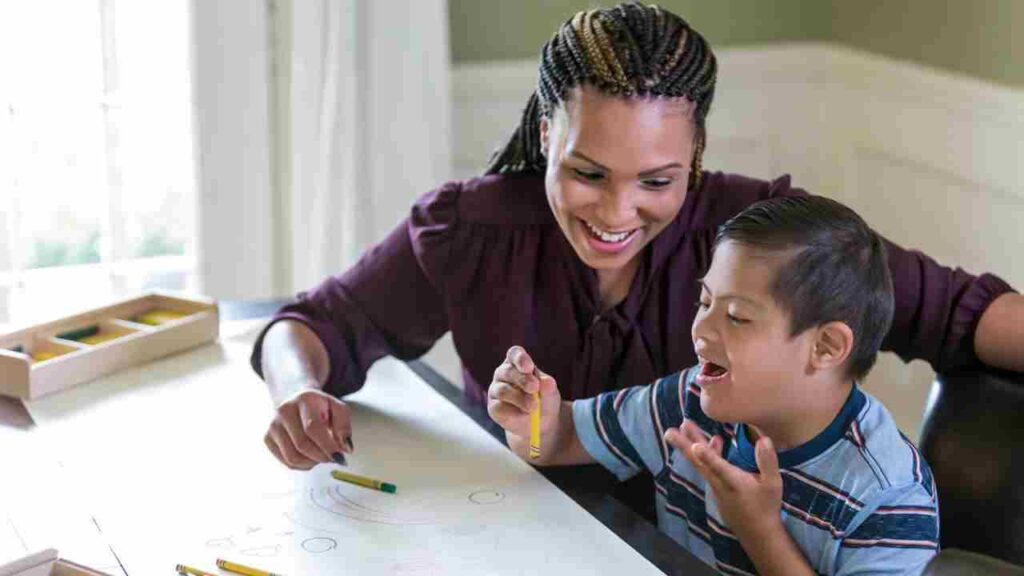For children with disabilities, developing self-advocacy skills can be particularly challenging due to various physical, cognitive, or communication barriers they may face. However, it is crucial for them to learn how to advocate for themselves as it empowers them to take control of their lives and achieve their goals.
Self-advocacy skills encompass a wide range of abilities such as communication, problem-solving, decision-making, self-awareness, and self-esteem. By mastering these skills, children with disabilities can better understand their strengths and weaknesses, communicate their needs effectively to others, make informed decisions about their education or healthcare plans, and become more confident in social interactions.
Moreover, self-advocacy skills can help them overcome discrimination or stigma they may encounter in society by promoting self-respect and resilience.
Benefits of Developing Self-Advocacy Skills
Developing self-advocacy skills in children with disabilities is crucial for their growth and development. It empowers them to communicate effectively, make decisions, and take charge of their lives. In this section, we will discuss the benefits of developing self-advocacy skills in children with disabilities.
1. Increased Independence and Self-Confidence
When children learn to advocate for themselves, they become more independent and confident. They can express their needs, wants, and preferences without relying on others to do it for them. This independence fosters a sense of control over their lives and enhances their self-esteem.
Self-advocacy also helps children with disabilities to become more assertive. They learn to stand up for themselves when faced with discrimination or mistreatment. This assertiveness helps them navigate social situations and build positive relationships with peers.
2. Improved Communication and Problem-Solving Skills
Developing self-advocacy skills requires effective communication. Children learn to express themselves clearly, listen actively, and negotiate solutions that work for everyone involved. These communication skills are essential for success in school, work, and personal relationships.
Problem-solving is another critical skill that children develop through self-advocacy. They learn to identify problems, brainstorm solutions, evaluate options, and make informed decisions. These problem-solving skills are transferable across different contexts and prepare children for future challenges.
3. Enhanced Quality of Life
The benefits of developing self-advocacy skills extend beyond individual growth and development. Research shows that individuals who advocate for themselves have better health outcomes, higher academic achievement, improved employment prospects, and greater community involvement.
In addition to these tangible benefits, self-advocacy also enhances the quality of life by promoting inclusion and diversity. When children with disabilities can advocate for themselves effectively, they can participate fully in society without facing barriers or discrimination.
Read also: How to help People with Autism
Strategies for Building Self-Advocacy Skills
Self-advocacy skills are essential for children with disabilities to achieve success in their lives. These skills enable them to communicate their needs, make informed decisions, and become independent individuals. Here are some effective strategies that parents, educators, and healthcare professionals can use to build self-advocacy skills in children with disabilities.
1. Encourage Self-Expression
One of the first steps in developing self-advocacy skills is to encourage self-expression. Children need to learn how to express themselves effectively to communicate their needs and feelings. Active listening is an essential component of self-expression. It involves paying attention to what the child is saying and responding appropriately.
Open-ended questions are another way of encouraging self-expression. They allow children to share their thoughts and feelings without feeling restricted by a specific answer. Validating their feelings can also enhance their self-esteem and confidence.
2. Teach Decision-Making and Problem-Solving Skills
Teaching decision-making and problem-solving skills is crucial for building self-advocacy skills in children with disabilities. Identifying the problem, brainstorming solutions, evaluating options, and making decisions are the key aspects of this strategy.
Parents, educators, and healthcare professionals can involve children in decision-making processes by giving them choices within certain boundaries. This approach fosters independence while still providing structure.
3. Promote Self-Determination
Promoting self-determination means fostering a sense of control over one’s life. Encouraging choice-making, fostering independence, and supporting self-regulation can help promote self-determination in children with disabilities.
Parents can provide opportunities for children to make choices about everyday activities such as clothing or food preferences. Educators can encourage independence by allowing students to complete tasks on their own or with minimal assistance. Healthcare professionals can support self-regulation by teaching coping mechanisms for stress or anxiety.
4. Provide Opportunities for Advocacy
Providing opportunities for advocacy is another effective strategy for building self-advocacy skills in children with disabilities. Role-playing scenarios where they practice advocating for themselves can be beneficial.
Participating in Individualized Education Program (IEP) meetings allow students to voice their opinions on educational goals and accommodations that best meet their needs. Joining local or online advocacy groups provides a platform for sharing experiences, gaining support from peers, and learning about resources available within the community.
Read also: How to Choose the Right Assistive Technology for Your Child
Challenges Faced by Children with Disabilities
Children with disabilities face a multitude of challenges when it comes to developing self-advocacy skills. One of the most significant obstacles is communication barriers. Many children with disabilities struggle to communicate their needs, wants, and feelings effectively. This can lead to frustration, anxiety, and a sense of helplessness. It also makes it difficult for them to express their opinions and advocate for themselves in various settings.
Another challenge that children with disabilities face is social stigma and discrimination. Unfortunately, there is still a lot of misunderstanding and misinformation surrounding disabilities, which can lead to negative attitudes and behaviors toward those who have them. This can be particularly damaging for children who are trying to develop their self-advocacy skills because it can make them feel like they don’t belong or that their voice doesn’t matter.
Finally, children with disabilities often lack support and resources when it comes to building self-advocacy skills. Many schools and other institutions do not provide adequate accommodations or training for students with disabilities on how to advocate for themselves effectively. This means that these children are left to figure things out on their own or rely on the support of their families or caregivers.
Read also: The Benefits of Assistive Technology for Children with Disabilities
Collaborative Efforts for Promoting Self-Advocacy Skills
Collaboration is key to promoting self-advocacy skills in children with disabilities. Parents and caregivers play a crucial role in this process by providing support, encouragement, and guidance. They can help their children identify their strengths and weaknesses, set goals, and develop strategies for achieving them. In addition, educators and healthcare professionals can work together with parents to create individualized plans that address the specific needs of each child.
Advocacy for policy changes is also an important aspect of promoting self-advocacy skills. This includes advocating for inclusive education policies that provide all children with equal access to education, regardless of their abilities. It also involves advocating for policies that promote accessibility and accommodations in public spaces, such as transportation systems, buildings, and parks.
Ultimately, collaborative efforts are essential for empowering children with disabilities to become self-advocates. By working together, parents, caregivers, educators, healthcare professionals, and policymakers can create an environment that supports the development of these important skills. With the right support and resources in place, children with disabilities can thrive and succeed in all areas of life.






